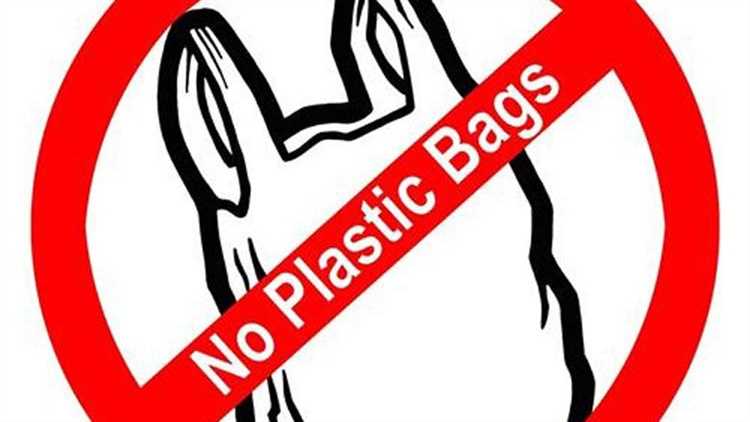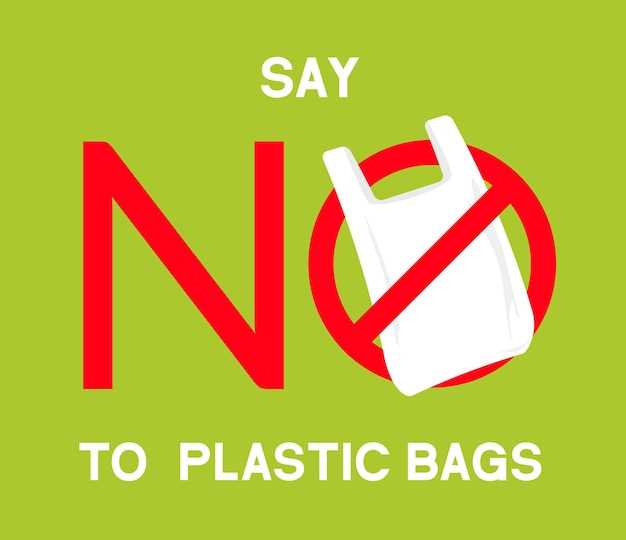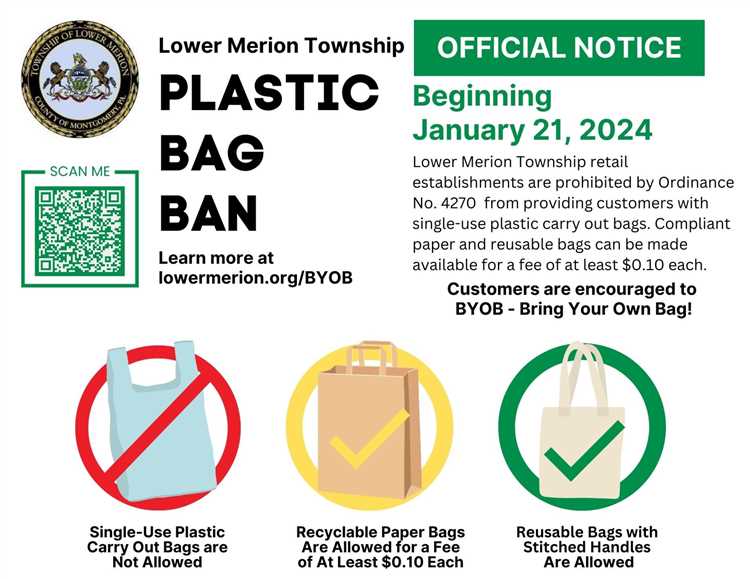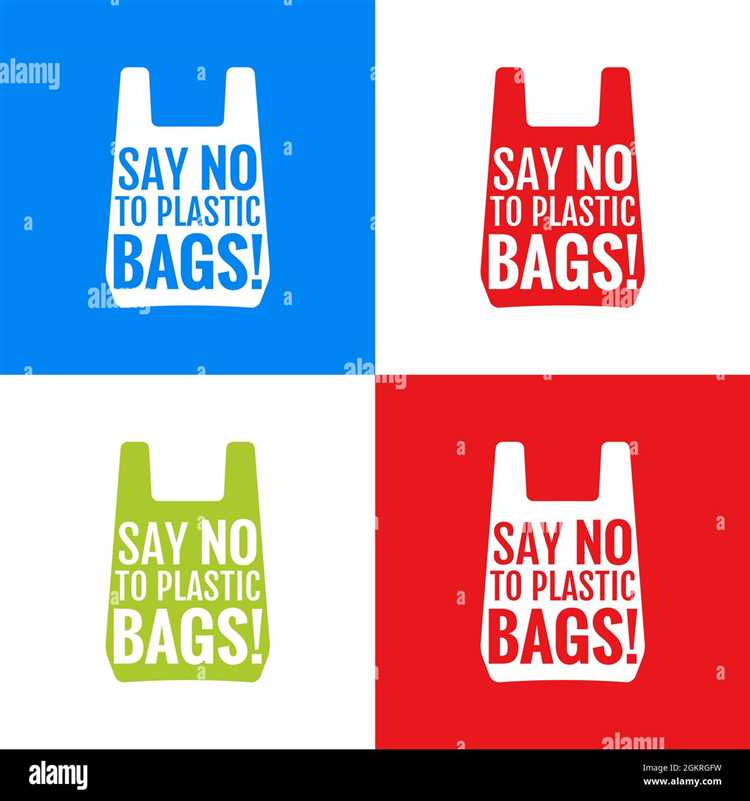
Plastic pollution has become a pressing environmental issue worldwide. One of the major contributors to this problem is the excessive use of plastic bags, which often end up in landfills and harm the ecosystem. In response to this growing concern, many countries and cities have implemented a plastic bag ban to reduce plastic waste and encourage sustainable alternatives.
But why is a plastic bag ban essential? The negative impact of plastic bags on the environment is well-documented. These bags take hundreds of years to decompose, and their production and disposal contribute to greenhouse gas emissions. Additionally, plastic bags pose a serious threat to marine life, as they can be mistaken for food and cause injury or death when ingested.
Implementing a plastic bag ban requires a multi-faceted approach involving government regulations, public awareness campaigns, and the promotion of alternative solutions. Governments can introduce legislation to ban or tax single-use plastic bags, while providing incentives for businesses and consumers to switch to reusable options. Simultaneously, educating the public about the environmental consequences of plastic bags and highlighting the benefits of reusable alternatives is crucial in fostering a culture of sustainable living.
- Why Plastic Bag Ban Sign is Essential and How to Implement It
- Environmental Impact of Plastic Bags
- Effects on Land
- Alternative Solutions
- Benefits of Implementing a Plastic Bag Ban
- Global Efforts and Success Stories
- Kenya
- Rwanda
- California, USA
- Economic Considerations and Cost Savings
- Cost savings for retailers
- Transition challenges
- Public Awareness and Education Campaigns
- Practical Steps to Implement a Plastic Bag Ban
- Q&A:
- Why is a plastic bag ban necessary?
- How can a plastic bag ban be implemented?
- What are the benefits of a plastic bag ban?
- Are there any alternatives to plastic bags?
Why Plastic Bag Ban Sign is Essential and How to Implement It

A plastic bag ban sign is essential for raising awareness about the detrimental impacts of single-use plastic bags. Plastic bags are a major contributor to environmental pollution, causing harm to marine life, clogging drainage systems, and taking hundreds of years to decompose. By implementing a plastic bag ban sign, communities can educate individuals about the importance of reducing plastic waste and encourage them to adopt more sustainable alternatives.
Implementing a plastic bag ban sign requires a multi-step approach. Firstly, government bodies or local authorities need to pass legislation or regulations to enforce the ban. This could involve conducting thorough research on the environmental impacts of plastic bags and consulting with stakeholders such as businesses and community organizations.
Once the ban is established, it is important to create and distribute plastic bag ban signs throughout the community. These signs should clearly communicate the reasons behind the ban and encourage individuals to use reusable bags instead. They can be placed in prominent locations such as grocery stores, retail shops, and public spaces to ensure maximum visibility.
In addition to signage, education and outreach programs play a crucial role in implementing a successful plastic bag ban. Community members should be educated about the negative consequences of plastic bags and informed about the available alternatives. This can be done through workshops, public campaigns, and online resources.
Furthermore, it is important to collaborate with local businesses to ensure their support and compliance with the ban. This can be achieved by providing information, resources, and incentives to encourage businesses to adopt sustainable practices. Offering reusable bags as alternatives or providing discounts for using them can further incentivize individuals to make the switch.
In conclusion, a plastic bag ban sign is essential in creating awareness and promoting the implementation of a plastic bag ban. By taking a comprehensive approach that involves legislation, signage, education, and collaboration with businesses, communities can work towards reducing plastic waste and protecting the environment for future generations.
Environmental Impact of Plastic Bags

Plastic bags have had a significant negative impact on the environment. They are non-biodegradable and take hundreds of years to decompose. This means that once they are discarded, they can persist in the environment for a very long time.
One of the most serious environmental issues associated with plastic bags is their contribution to pollution in oceans and waterways. When plastic bags end up in water bodies, they can be ingested by marine animals like birds, turtles, and fish. This not only causes harm to these animals but also disrupts the entire ecosystem.
Plastic bags also contribute to climate change. The production of plastic bags requires the extraction and processing of fossil fuels, which releases greenhouse gases into the atmosphere. Additionally, the disposal of plastic bags often involves burning, which emits toxic fumes and further contributes to air pollution.
Effects on Land
The impact of plastic bags on land is also significant. When plastic bags are thrown away, they often end up in landfills instead of being properly recycled. Over time, these landfills become overcrowded with plastic waste, taking up valuable space and contributing to pollution of both soil and groundwater.
Alternative Solutions
To address the environmental impact of plastic bags, many countries and cities have implemented bans or restrictions on their use. These policies encourage the use of reusable bags made from sustainable materials like cotton or jute. Additionally, promoting recycling and educating the public on the importance of reducing plastic waste can help mitigate the harmful effects of plastic bags on the environment.
By understanding the environmental impact of plastic bags and taking action to reduce their consumption, we can work towards a cleaner and more sustainable future.
Benefits of Implementing a Plastic Bag Ban
Implementing a plastic bag ban can have numerous benefits for both the environment and the community. Here are some of the key advantages:
| 1. |
Reduction in litter: Plastic bags are a major source of litter in our communities. By implementing a ban, we can significantly reduce the amount of plastic bag waste that ends up in streets, parks, and water bodies. |
| 2. |
Protecting wildlife: Plastic bags are harmful to wildlife. Animals often mistake them for food and can suffer from ingestion or entanglement. Banning plastic bags can help protect animals and preserve biodiversity. |
| 3. |
Conservation of resources: Plastic bags are made from non-renewable resources such as oil and gas. By reducing our reliance on plastic bags, we can conserve these valuable resources for future generations. |
| 4. |
Promotion of alternatives: A plastic bag ban can encourage the use of more sustainable alternatives such as reusable cloth bags or paper bags made from recycled materials. This can help foster a culture of sustainability and responsible consumption. |
| 5. |
Reduction in greenhouse gas emissions: Plastic bag production and disposal contribute to greenhouse gas emissions and climate change. Implementing a ban can help reduce these emissions and mitigate the impact of global warming. |
| 6. |
Cost savings: Plastic bags may seem cheap, but their environmental costs are much higher. By banning plastic bags, we can reduce the amount of waste that needs to be managed and save on landfill and cleanup costs. |
Global Efforts and Success Stories
Plastic bag bans have been gaining momentum around the world as countries and cities recognize the urgent need to reduce plastic waste and its impact on the environment. Here are some global efforts and success stories in implementing plastic bag bans:
Kenya
In 2017, Kenya implemented one of the strictest plastic bag bans in the world. The country introduced a complete ban on the production, sale, and use of plastic bags, and even imposed heavy fines and prison sentences for violators. This bold move has led to a significant reduction in plastic pollution, with the streets and landscapes of Kenya becoming cleaner and safer for both wildlife and humans alike.
Rwanda
Rwanda is widely regarded as one of the success stories in plastic bag bans. The country implemented a ban on plastic bags in 2008, and since then, it has become one of the cleanest countries in Africa. The government implemented strict regulations and policies, and the citizens have wholeheartedly embraced alternatives like cloth bags and paper bags. As a result, Rwanda has not only reduced plastic pollution but also become a model for other countries to follow.
California, USA
California became the first state in the United States to implement a statewide ban on single-use plastic bags in 2014. The ban not only reduced plastic waste in the state but also inspired other states to follow suit. Nowadays, many cities across the country have implemented their own plastic bag bans, leading to a significant reduction in plastic pollution and a shift towards reusable bags.
| Country/City | Date of ban implementation |
|---|---|
| Kenya | 2017 |
| Rwanda | 2008 |
| California, USA | 2014 |
These success stories prove that plastic bag bans can make a significant difference in reducing plastic pollution. By learning from these examples and implementing similar measures, more countries and cities can contribute to a cleaner and healthier environment for future generations.
Economic Considerations and Cost Savings
Banning plastic bags can have a significant positive impact on the economy. While there may be some initial costs associated with the implementation of the ban, the long-term cost savings outweigh these initial expenses.
One of the economic benefits of banning plastic bags is the reduction in litter and waste management costs. Plastic bags are a major source of litter, clogging up drains, polluting waterways, and causing harm to wildlife. By eliminating plastic bags, local communities can save on the expenses involved in cleaning up and managing this waste.
Furthermore, the use of reusable bags can help stimulate the local economy. When people switch to using reusable bags, they often invest in durable and long-lasting options. This creates a demand for reusable bag manufacturers and retailers, supporting local businesses and creating new jobs in the process.
Cost savings for retailers
Retailers can also benefit from the plastic bag ban in terms of cost savings. Plastic bags are not free for businesses; they add up to a considerable expense over time. By eliminating plastic bags, retailers can reduce their operational costs and potentially pass on these savings to consumers.
Additionally, retailers can leverage the ban as a marketing opportunity. Many consumers are now conscious of the environmental impact of single-use plastic, and promoting a plastic bag-free policy can attract environmentally-conscious customers. This can lead to increased customer loyalty and higher sales for businesses.
Transition challenges
While the economic benefits of a plastic bag ban are clear, it is important to acknowledge and address the challenges that may arise during the transition. Some businesses, particularly smaller retailers, may struggle initially to find affordable alternatives to plastic bags. Providing support and resources for these businesses can help ensure a smooth transition.
In conclusion, implementing a plastic bag ban has several economic advantages. It can save communities money on litter clean-up and waste management, stimulate the local economy, and result in cost savings for retailers. The transition may present challenges, but with the right support and planning, these can be overcome for the long-term benefit of the economy and the environment.
Public Awareness and Education Campaigns

Public awareness and education campaigns play a crucial role in the successful implementation of a plastic bag ban. These campaigns aim to inform and educate the public about the negative impacts of plastic bags on the environment and the benefits of reducing their usage.
One key aspect of these campaigns is raising awareness about the harmful effects of plastic bags on wildlife and marine ecosystems. By highlighting the damage caused by plastic bag pollution, such as entanglement and ingestion by animals, people are more likely to understand the need for change.
Education campaigns also focus on promoting alternative solutions, such as reusable bags, and explaining how they can help reduce plastic waste. These campaigns provide information on where to find and purchase reusable bags, as well as the importance of always having one handy to avoid relying on single-use plastic bags.
Furthermore, public awareness campaigns often involve partnerships with local businesses and community organizations. By working together, these initiatives can reach a wider audience and have a greater impact. For example, businesses can display posters or signs promoting the plastic bag ban and provide incentives for customers who bring their own bags.
Emphasizing the environmental benefits and cost savings associated with implementing a plastic bag ban is also crucial. By highlighting that reducing plastic bag usage can lead to cleaner streets, less litter, and savings in waste management and cleanup costs, individuals are more likely to support the ban and make positive changes in their own behavior.
Overall, public awareness and education campaigns are vital in creating a collective understanding and commitment to the plastic bag ban. By providing information, promoting alternative solutions, and emphasizing the benefits, these campaigns can help change attitudes and behaviors towards plastic bag usage, leading to a cleaner and more sustainable future.
Practical Steps to Implement a Plastic Bag Ban
To successfully implement a plastic bag ban, there are several practical steps that should be followed:
- Educate the public: Start by educating the public about the negative impacts of plastic bags on the environment and the benefits of using reusable alternatives. This can be done through public awareness campaigns, informational materials, and community events.
- Consult with stakeholders: Engage with stakeholders such as retailers, grocery stores, and local businesses to understand their concerns, address any potential challenges, and develop a collaborative approach to the ban.
- Establish a timeline: Set a realistic timeline for the implementation of the plastic bag ban. This should include specific dates for phasing out plastic bags and transitioning to reusable alternatives.
- Provide alternatives: Ensure that there are readily available and affordable alternatives to plastic bags, such as reusable shopping bags or paper bags. Work with local businesses to promote and distribute these alternatives.
- Enforce the ban: Develop a plan for enforcing the ban, including penalties for non-compliance. This may involve working with local law enforcement agencies and conducting regular inspections of businesses to ensure compliance.
- Evaluate and adapt: Continuously evaluate the effectiveness of the ban and make any necessary adjustments. Monitor the usage of plastic bags, gather feedback from stakeholders and the public, and make changes as needed to ensure the long-term success of the ban.
Implementing a plastic bag ban requires careful planning and coordination, but it is an essential step towards reducing plastic waste and protecting the environment for future generations.
Q&A:
Why is a plastic bag ban necessary?
A plastic bag ban is necessary to reduce the negative impact of plastic bags on the environment. Plastic bags are non-biodegradable and take hundreds of years to decompose. They end up in landfills and oceans, polluting the Earth and harming wildlife.
How can a plastic bag ban be implemented?
A plastic bag ban can be implemented through legislation or government regulations. This may involve introducing taxes or fees on plastic bags, providing incentives for using reusable bags, and raising awareness about the importance of reducing plastic waste.
What are the benefits of a plastic bag ban?
A plastic bag ban has several benefits. It reduces the amount of plastic waste in the environment, decreases pollution, conserves natural resources, and protects wildlife. Additionally, it encourages the use of reusable bags, which are more sustainable and eco-friendly.
Are there any alternatives to plastic bags?
Yes, there are several alternatives to plastic bags. Reusable bags made from materials like canvas, jute, or cotton are a popular option. Paper bags, although not as durable, are biodegradable. Some people also use mesh produce bags or carry their items without any bag at all.